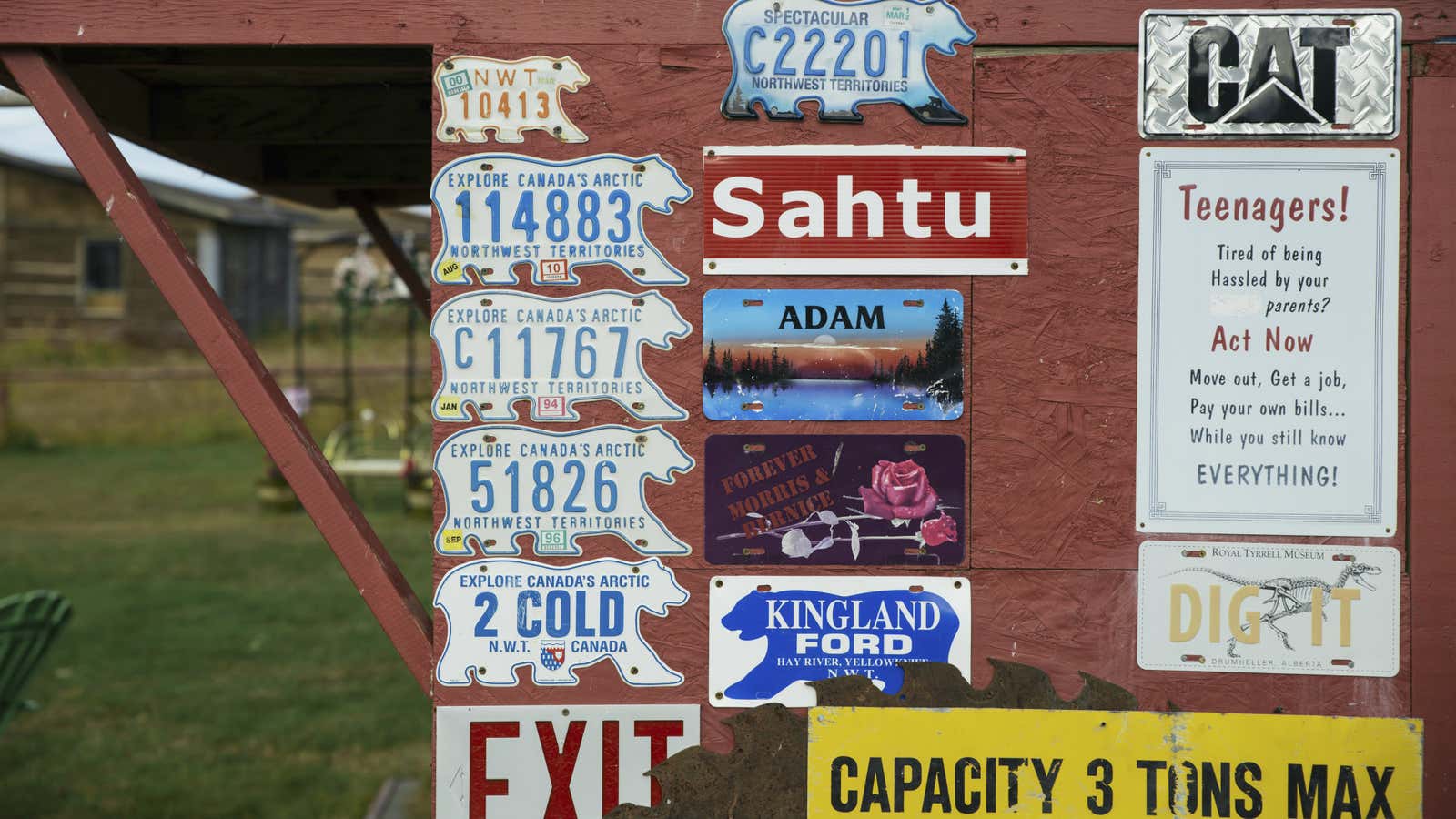Lorne Grabher of Nova Scotia, Canada is proud of his personalized license plate. He registered it as a gift to his father in 1991. Since then, three generations of Grabhers have driven cars bearing plates emblazoned with their last name. It’s seven letters long. It fits perfectly on a license plate.
Unfortunately, out of context, the plate looks a little…awkward.
In December, the government of Nova Scotia received a complaint from a woman who saw the plate and found it an offensive promotion of violence toward women. Shortly thereafter, Grabher received a letter from the Nova Scotia Registry of Motor Vehicles informing him that the plate would be cancelled.
“With no way to denote that it is a family name on the plate, the department determined it was in the public’s best interest to remove it from circulation,” a spokesperson for the province’s transportation department told the Canadian broadcaster CBC.
Grabher’s son Troy has the same license plate in the province of Alberta. He is worried he too may lose his custom plate.
The complaint came two months after the release of the infamous recording in which Donald Trump—then a presidential candidate, now US head of state—bragged about the ease with which he could “grab” women by their genitals and get away with it.
“I’ve never said I’m a perfect person, nor pretended to be someone that I’m not…I said it, I was wrong, and I apologize,” Trump said in a videotaped response at the time, before calling the recording “nothing more than a distraction from the important issues we’re facing today.”
Lorne Grabher wants no part of that misogyny. He just wants his license plate back and is considering legal action to get it.
“Donald Trump is a totally different person. He’s ignorant. He doesn’t care about anybody and I shouldn’t be put in a class like him,” Grabher told CBC. “I guess my wife has to change the name of her consulting company, Grabher’s Consulting. That has to be taken away? I guess I’m going to have to change my birth certificate.”
